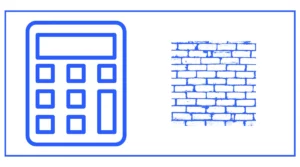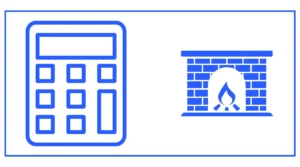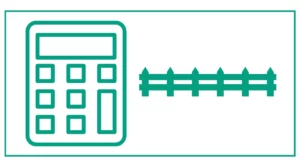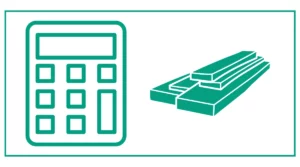House Construction Cost Calculator (All States)
Water and sewer inspections – $4500
House plans – $500
Construction project management fees – $3000
Building permits – $3000
Impact fee or local charges – $3000
Excavation – $2300
Foundation – $9000
Framing – $33000
Exterior Siding – $11500
Roofing – $9200
Exterior windows and doors – $7750
HVAC – $11200
Plumbing – $11000
Electrical – $10100
Insulation – $5250
Drywall – $15550
Painting – $7000
Trim and interior doors – $11000
Flooring – $10250
Cabinets and countertops – $11800
Plumbing fixtures – $3200
Lighting fixtures – $3100
Appliances – $3550
Driveway – $4400
Landscaping – $5860
Cleanup – $2600
Contingencies/other – $45000
Building a home is an exciting journey, but it’s crucial to have a clear understanding of the potential costs involved. Our construction cost calculator is designed to help you estimate the expenses associated with building your dream home.
Whether you’re planning a modest starter home or a luxurious custom residence, this tool will provide you with valuable insights into the financial aspects of your construction project.
Why use a construction cost calculator?
Estimating the cost of building a house can be a complex process. There are numerous variables to consider, including location, materials, labor costs, and design features. A construction cost calculator simplifies this process by providing a quick and easy way to get a ballpark figure for your project. Here’s why using our calculator can be beneficial:
- Time-saving: Instead of manually researching and calculating costs, you can get an estimate in minutes.
- Comprehensive: Our calculator takes into account various factors that influence construction costs.
- Customizable: You can adjust inputs to reflect your specific needs and preferences.
- Planning tool: Use the estimates to help with budgeting and financial planning for your construction project.
How to Use Our Construction Cost Calculator
Our user-friendly calculator allows you to estimate home construction costs based on your location and specific requirements. Here’s a step-by-step guide on how to use it:
- Choose a calculator. Select from options like Cost by State, Cost by Expense Type, or Cost by Square Footage.
- Input your details: Depending on the calculator chosen, enter information such as your state, specific expenses, or square footage.
- Calculate: Click the “Calculate” button to get your estimate.
- Review results: Examine the breakdown of costs and total estimate provided.
Calculate Your Dream Home Construction Costs
Cost by State Calculator
Our cost-by-state calculator estimates average construction costs in different U.S. states. This can be particularly helpful if you’re considering building in various locations or want to understand how costs might differ across state lines.
To use this calculator:
- Select your state from the drop-down menu.
- Click “Calculate” to see the estimated cost for a 2,000-square-foot house in that state.
For example, if you select California, you might see an estimate like:
“Estimated cost for a 2,000-square-foot house in California: $405,440”
This gives you a baseline to work from, understanding that actual costs may vary based on specific location within the state, design choices, and current market conditions.
Cost-by-Expense Type Calculator
The Cost by Expense Type calculator allows you to select specific components of your construction project and see how they contribute to the overall cost. This can be particularly useful for understanding where your money is going and identifying areas where you might want to adjust your budget.
To use this calculator:
- Check the boxes next to the expenses you want to include in your estimate.
- Click “Calculate Cost” to see the total and a breakdown of selected expenses.
For instance, you might select expenses like:
- Foundation: $9,000
- Framing: $33,000
- Roofing: $9,200
- HVAC: $11,200
The calculator would then provide you with a total cost and itemize these expenses, helping you understand how each contributes to the overall project cost.
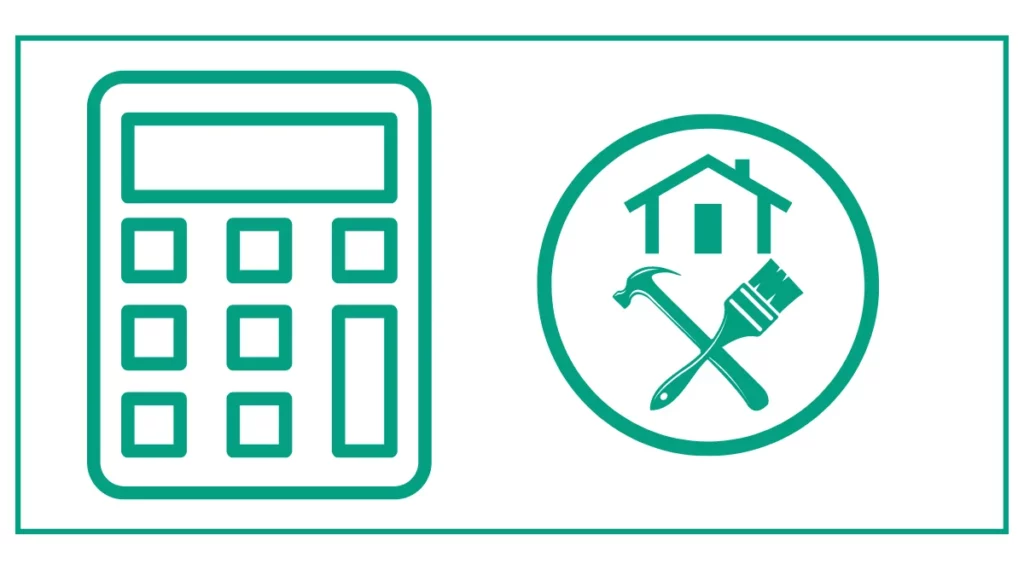
Cost by Square Footage Calculator
The Square Footage calculator provides estimates based on the size of your planned home. This can be particularly useful for getting a quick ballpark figure or comparing costs for homes of different sizes.
To use this calculator:
- Enter the square footage of your planned home.
- Click “Calculate Cost” to see average, highest, and lowest possible costs.
For example, if you input 2,500 square feet, you might see results like:
- Average Estimated Cost: $375,000
- Highest Possible Cost: $1,250,000
- Lowest Possible Cost: $250,000
This range gives you an idea of how costs can vary based on factors like materials, location, and design complexity.
Factors Affecting Home Construction Costs
While our calculator provides valuable estimates, it’s important to understand that many factors can influence the actual cost of building your home. Some key factors include:
- Location: Construction costs can vary greatly depending on your specific location, even within the same state.
- Materials: The quality and type of materials you choose will significantly impact your overall costs.
- Labor: Labor costs can vary based on local market conditions and the complexity of your project.
- Design complexity: Unique or complex architectural designs often come with higher price tags.
- Site conditions: The condition of your building site can affect costs related to excavation, foundation work, and utilities.
- Finishes and fixtures: The level of finishes you choose, from basic to luxury, will influence your total cost.
- Energy efficiency: Incorporating energy-efficient features may increase upfront costs but can lead to long-term savings.
Interpreting Your Construction Cost Estimate
When you receive your estimate from our calculator, it’s important to remember that this is a starting point rather than a final quote. Here are some tips for interpreting your results:
- Consider it a ballpark figure. Use this estimate as a general guide rather than an exact prediction.
- Factor in additional costs: Remember that some costs, like land purchase or certain permits, may not be included in the estimate.
- Plan for contingencies: It’s wise to add 10-20% to your estimated cost to account for unexpected expenses.
- Use it for comparison: The calculator can be a useful tool for comparing costs between different house sizes or locations.
- Consult professionals: For a more accurate estimate, consult with local contractors who can provide detailed quotes based on your specific plans.
Build Your Home: From Cost Estimation to Reality
Once you have an initial cost estimate, you’re ready to move forward with your home construction project. Here are some next steps to consider:
- Refine your plans. Use your cost estimate to adjust your plans if necessary, balancing your dream features with your budget.
- Consult with professionals. Speak with architects, contractors, and other construction professionals to get more detailed insights and quotes.
- Secure financing: Use your estimate to help secure financing for your project, whether through a construction loan or other means.
- Obtain permits: Research and obtain necessary building permits for your area.
- Choose a contractor. Select a reputable contractor who can bring your vision to life within your budget.
- Monitor progress: Stay involved throughout the construction process to ensure your project stays on track and on budget.
Customizing Your Home Construction Cost Estimate
While our calculator provides a solid starting point, you may want to customize your estimate further. Here are some ways to do this:
- Adjust for premium features: If you’re planning high-end finishes or custom features, factor in additional costs.
- Consider energy efficiency: If you’re planning to incorporate green building techniques or energy-efficient systems, you may need to adjust your estimate upwards initially, keeping in mind the long-term savings.
- Factor in outdoor spaces: Don’t forget to include costs for landscaping, decks, or patios if these are part of your plan.
- Account for smart home technology: If you’re planning to incorporate smart home features, factor these into your budget.
Affordable Home Building: Tips to Manage Costs
If your initial estimate seems higher than expected, there are ways to potentially reduce costs without sacrificing the quality of your dream home:
- Simplify the design: Complex designs often come with higher price tags. Consider a simpler floor plan to reduce costs.
- Choose cost-effective materials: Research alternative materials that offer durability and aesthetics at a lower cost.
- Prioritize your must-haves: Focus on the features that are most important to you and consider leaving some as future projects.
- Consider the timing: Construction costs can fluctuate based on market conditions. If possible, time your project when demand (and thus prices) may be lower.
- Be your own general contractor. If you have the time and expertise, acting as your own general contractor can save money.
- Look for energy-efficient rebates: Many localities offer incentives for incorporating energy-efficient features, which can offset some costs.
The Importance of Accurate Cost Estimation in Home Construction
Accurate cost estimation is crucial for several reasons:
- Budget planning: It helps you set a realistic budget and avoid financial strain during the construction process.
- Financing: Lenders often require detailed cost estimates before approving construction loans.
- Decision-making: Accurate estimates help you make informed decisions about design choices and materials.
- Avoiding surprises: A thorough estimate can help prevent unexpected costs that could derail your project.
- Project scope: It helps define the scope of your project and set clear expectations with contractors.

You might want to calculate the required crushed stone, water for construction, electricity requirements, and the weight of the rebar.
